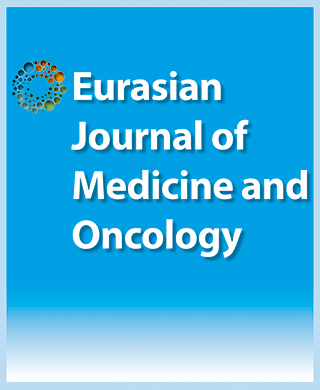

The Human Papilloma Virus Vaccination: Turkish Mothersí Views
Bahire Ulus1, Gizem Sahin2, ‹kke Karabacak3, Fatma Eti Aslan41Department of Nursing, Acibadem Mehmet Ali Aydinlar University, Health Sciences Faculty, Istanbul, Turkey, 2Department of Nursing, Istanbul University, Florence Nightingale Faculty of Nursing, Istanbul, Turkey, 3Department of Nursing, Acibadem Mehmet Ali Aydinlar University Health Sciences Faculty, Istanbul, Turkey, 4Department of Nursing, Bahcesehir University, Health Sciences Faculty, Istanbul, Turkey,
Objectives: This study was conducted in order to analyze the knowledge and opinions of mothers of daughters in Turkey regarding the human papilloma virus (HPV) vaccine. Methods: This descriptive study was conducted at 8 public family health centers at primary health care institutions affiliated with the Ministry of Health located in AtaĢehir, in Istanbul province. A total of 252 mothers of daughters participated. A sociodemographic characteristics form and an HPV vaccine evaluation questionnaire were used to collect the data. The data were analyzed using percentage, frequency distribution, a chi-square test, and Fisherís exact test. Results: Most of the participating mothers were between the ages of 28 and 47 years (68.7%), had a high school graduate education or less (82.5%), were not employed (67.9%), and had a low family income (57.6%). The majority (95.6%) had no experience with cervical cancer in their family, 60.7% had never heard of HPV infection, 72.2% did not know that HPV infection is related to cervical cancer, 54.8% had never heard of the HPV vaccine, 89.7% had not been advised to have their daughters vaccinated, and 98.8% had not yet had their daughters vaccinated. Among the factors influencing the mothersí information about HPV infection were age (p=0.021), education level (p<0.001), work status (p<0.001), mothersí marriage age (p<0.001) and family income level (p=0.009). It was determined that a greater education level positively influenced the mothersí intention to get the HPV vaccine for their daughter (p=0.044). Conclusion: This study revealed that the mothers had very limited knowledge of the HPV vaccine and that health professionals do not sufficiently inform parents on this subject. It was also found that the high cost of the vaccine and other influences had a negative impact on intention to pursue obtaining the vaccine.
Cite This Article
Ulus B, Sahin G, Karabacak ‹, Eti Aslan F. The Human Papilloma Virus Vaccination: Turkish Mothersí Views. EJMO. 2017; 1(4): 228-233
Corresponding Author: Bahire Ulus



